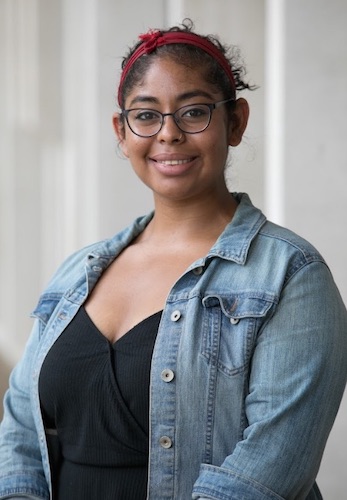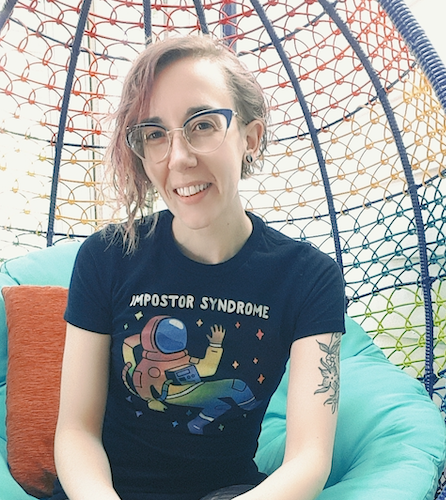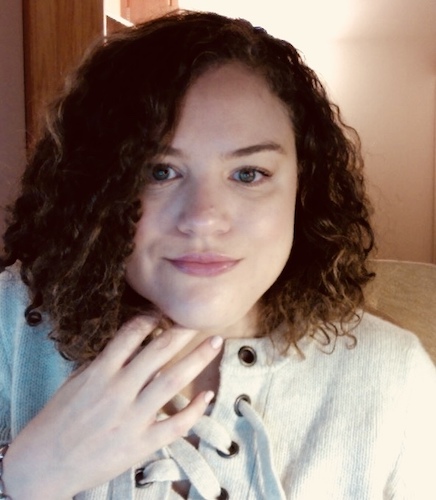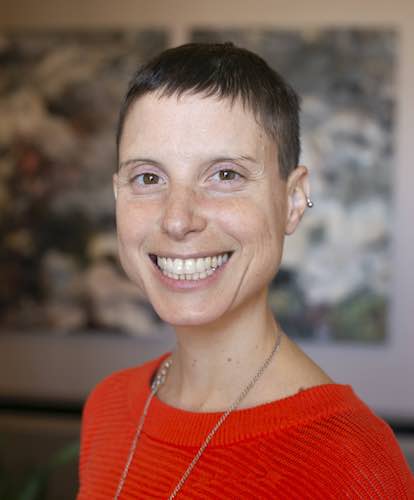Keynote
ACH 2023 Keynote: Accessibility and Digital Scholarship
Thursday, June 29, 2023
Speakers
Jasmine Clark

Jasmine Clark is the Digital Scholarship Librarian at Temple University. Her primary areas of research are accessibility and metadata in emerging technology and emerging technology centers. Currently, she is leading The Virtual Blockson, a project to recreate and gamify the Charles L. Blockson Afro-American Collection in virtual reality to teach high school students primary literacy skills. She is also doing research in 3D metadata and accessibility guidelines for virtual reality experiences. She is also the chair of the DLF Digital Accessibility Working Group, as well as a Co-Chair of the DLF Committee for Equity and Inclusion.
Jasmine has experience in a variety of functional areas and departments, including metadata, archives, digital scholarship, and communications and development. She is interested in the ways information organizations can integrate accessible, inclusive practices into their services, hiring, and management practices.
M. Remi Yergeau

M. Remi Yergeau (they/them/theirs) is an Arthur F. Thurnau associate professor of Digital Studies and English at the University of Michigan. They currently direct the Digital Accessible Futures Lab as a part of the DISCO Network, which receives funding support from the Mellon Foundation. Remi’s scholarly interests include rhetoric & communication, digital studies, queer rhetorics, disability studies, and neurodiversity. Their book, Authoring Autism: On Rhetoric and Neurological Queerness (Duke UP), is a winner of the 2017 MLA First Book Prize, the 2019 CCCC Lavender Rhetorics Book Award for Excellence in Queer Scholarship, and the 2019 Rhetoric Society of America Book Award. They are currently at work on a second book project, tentatively titled Crip Data. In their spare time, they obsess over the Electric Light Orchestra.
Moderators
Caitlin Pollock

Caitlin Pollock is the Digital Scholarship Specialist for University of Michigan Library, where she works with students and faculty on digital scholarship workshops, projects, and initiatives. Her work consists of coordinating workshops and public programming, and leading the library's online exhibits program and text and data mining services. She holds a Master of Science in Library and Information Science from Pratt Institute and a Master of Arts in Digital Humanities from Loyola University Chicago. Her research interests include Black digital humanities, Black women librarian history, humanities data, and DIY-making pedagogy.
Marisol Fila, Graduate Student Co-Moderator

Marisol Fila (she/her) is a PhD Candidate in Romance Languages and Literatures Spanish and Portuguese at the University of Michigan. Her dissertation explores how Black female and male writers, artists and intellectuals in the twenty-first century Black presses of Buenos Aires, Argentina, São Paulo, Brazil, and Lisbon, Portugal use digital and print media to navigate distinct articulations between diasporic and national Black identities. Marisol is also interested in Critical Pedagogy and Public Digital Humanities and in the ways in which technology and digital media can serve as a tool to share her research and work to a wider audience, but also to develop digital projects in partnership with Afro-descendant organizations across Portuguese and Spanish speaking countries. Marisol is the recipient of a University of Michigan 2022 Anti-Racism Research Grant and a current Imagining America PAGE Co-Director.
Selecting the Keynote Speakers
In choosing this year’s keynote theme of “Accessibility and Digital Scholarship,” we chose to underscore the values that shape this virtual conference, articulated in our original call for proposals:
“ACH 2023 is guided by our commitments to equity and justice. The conference recognizes that digital humanities scholarship is inextricably sociopolitical. Therefore, we have chosen to forgo a theme to emphasize the inherent sociopolitical nature of the work and encourage all proposal writers to explicitly address the sociopolitical stakes of their work.
ACH 2023 prioritizes proposals that focus on social justice in multiple contexts: anti-racist work, Indigenous studies, cultural and critical ethnic studies, intersectional feminism, postcolonial and decolonial studies, disability studies, and queer studies.”
We explored many possible themes before deciding that questions of accessibility were the most pressing during this third year of the COVID-19 pandemic. With the push to “return to normal,” we thought of those who cannot or will not resume a pre-pandemic life, and of the urgency of ensuring accessibility in digital scholarship and virtual spaces moving forward. We were particularly drawn to the work of Jasmine Clark and M. Remi Yergeau, who have dedicated their academic careers to exploring questions of accessibility in digital spheres.
Jasmine Clark’s work emphasizes the importance of accessibility standards in virtual reality and in library technology. Her January 2023 article, co-written with Zack Lischer-Katz, “argues that critical failures in designing and implementing accessibility programs for emerging technologies in academic libraries point to the broader technocratic imperatives of contemporary universities operating under the logics of neoliberalism. Accessibility is an afterthought in this context, forcing users to adjust their bodies and senses to conform to the master plans of technology designers and evangelists.” [1]
The Digital Accessible Futures Lab, which M. Remi Yergeau directs, “examines pressing issues at the intersections of disability justice, techno-ableism, anti-racist praxis, and crip joy. We seek to dismantle ableist infrastructures in our everyday work. We root our practice in collective care and the deep learning that attends lived experience of disability. We join those who’ve come before us in imagining just crip futures.” We were particularly drawn to Dr. Yergeau’s work on crip-centered experiences, including Crip Time Travel.
-The ACH 2023 Conference Committee
Conference Chair: Pamella Lach (she/her/hers), San Diego State University
Program Committee Lead: Liz Grumbach (she/her/hers), Arizona State University
Platform Committee Co-Leads: Alex Wermer-Colan, Temple University & Andy Janco, University of Pennsylvania
Conference Committee Members: Caitlin Pollock (University of Michigan), Eduard Arriga (Clark University), Sarah Potvin (Texas A&M University)
Notes
[1] Clark, Jasmine L., and Zack Lischer-Katz. (2023) 2023. “(In)accessibility and the Technocratic Library: Addressing Institutional Failures in Library Adoption of Emerging Technologies”. First Monday 28 (1). https://doi.org/10.5210/fm.v28i1.12928.
